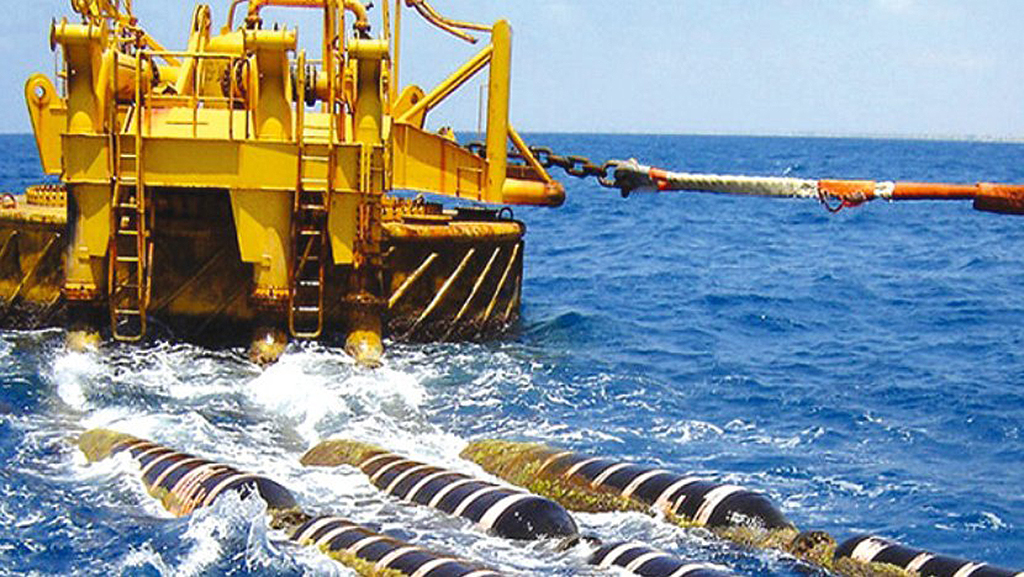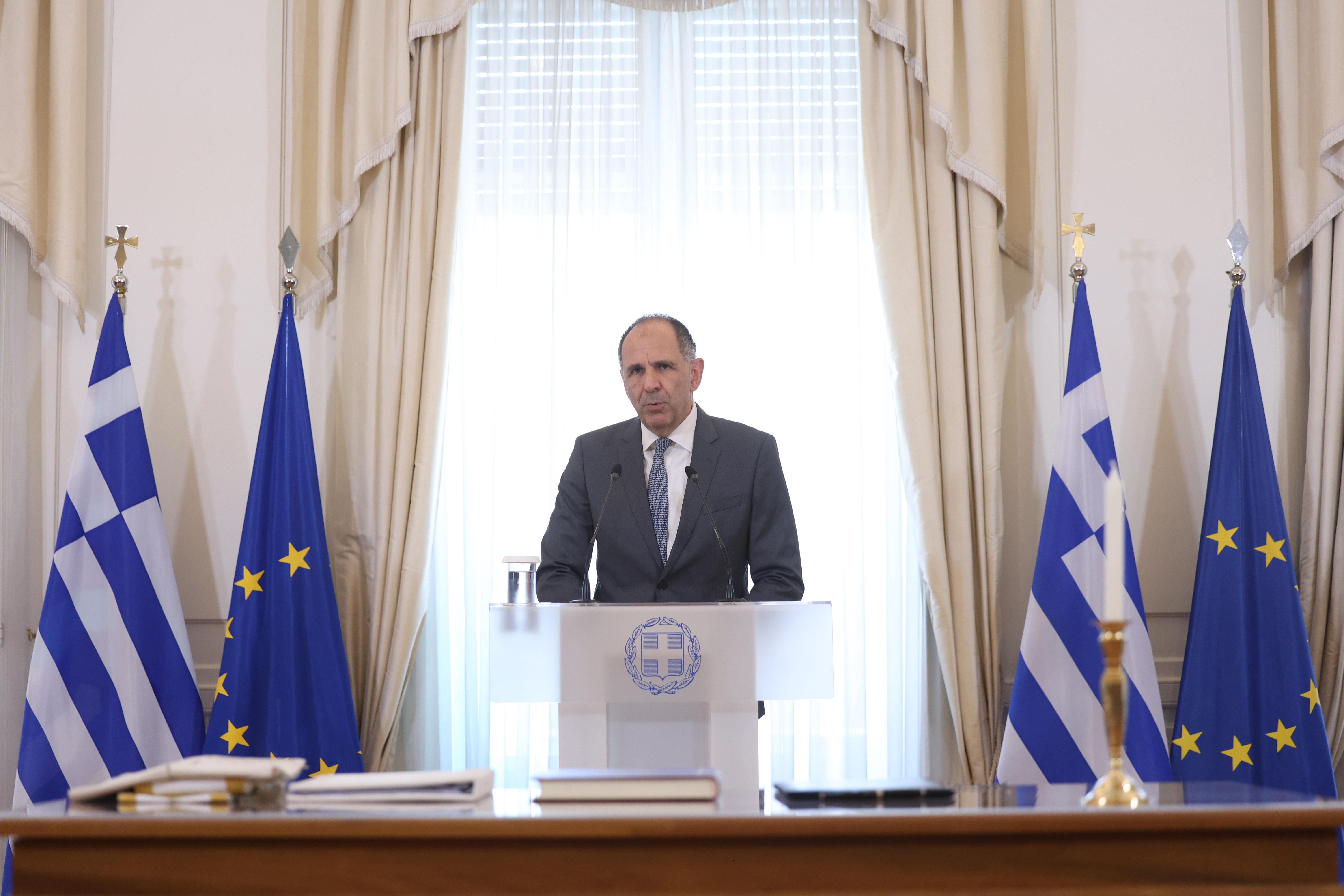Greek Foreign Minister Giorgos Gerapetritis on Tuesday warned of “consequences” for any “third country” which seeks to obstruct the construction of the Great Sea Interconnector, which, if complete, will link the energy grids of Greece, Cyprus, and Israel.
He made the comment during an interview with Greek television channel Action24, and insisted that surveys on the seabed in advance of the laying of electricity cables “did not stop”, but that in fact, “the research was completed according to its planning”.
“Indeed, Turkey had attempted to pursue a policy of obstructing this European project. This did not stop the Greek effort. The surveys were completed, and these surveys will continue. The laying of the cable is an important project, which mainly concerns Cyprus, because it will lift its energy isolation,” he said.
He insisted that the project will continue, describing it as “a piece of the geostrategic puzzle in the eastern Mediterranean”.
“The research and laying of the electricity cable will continue in the coming period,” he said, adding that while he “understands” that there is “a possibility” of a “third country” harbouring intentions of obstructing the laying of the cable, “if there is a will to obstruct it from any third country, it is obvious that there will be consequences”.
“Greece is not going to stop defending its sovereign rights in the field. We have proven that we are not afraid when it comes to supporting the homeland in the field,” he said.
Asked when work on the interconnector will resume, he said that “this will happen in the near future”, but that “the exact date has not yet been determined”, adding that this is “something that will have to be done in collaboration” with Nexans, the French company which manufactures the cables used in the interconnector.
“You know, it is also an exercise which is not simple. This is a project which has a scope which is infinitely larger than any other project. It covers a large area in the maritime space of the eastern Mediterranean,” he said, adding that there are “a series of issues which need to be resolved”.
He also confirmed that Greek Prime Minister Kyriakos Mitsotakis will meet Turkish President Recep Tayyip Erdogan during the United Nations’ “high-level week” between September 22 and September 26.
Turkish Cypriot leader Ersin Tatar and President Nikos Christodoulides are also set to meet in New York during the same week, with Mitsotakis, Erdogan, and Christodoulides all expected to give speeches to the UN general assembly during the same week.

Gerapetritis’ remarks come after Cypriot Finance Minister Makis Keravnos has on multiple occasions highlighted two separate studies conducted by two “serious and reliable” organisations which he said show that the project “is not sustainable”.
Most recently, he said on Sunday that “the question I ask is why the European Commission, which allocates funds under strict conditions and under specific timetables, is not after so many years asking why this project has not been completed”.
In May, Greece’s independent transmission system operator Admie, the project’s 51 per cent majority stakeholder and implementing body, was forced to denythat it has plans to build an electricity interconnector to the country’s Dodecanese islands rather than to Cyprus.
The denial came after a report was published in Greek newspaper Kathimerini which suggested that given the financial and geopolitical hurdles faced by the Great Sea Interconnector project, which would connect the electricity grids of Greece, Cyprus, and Israel, a project housed entirely in Greece may be more feasible.
The newspaper had written that Admie and Nexans have been “looking for a plan B to mitigate the effects of the prolonged uncertainty and the threat of cancellation”.
This, it said, is because “there is no longer any visibility regarding the resumption of surveys in international waters, which were stopped last July following Turkey’s reactions”.
The newspaper wrote that if the project is halted due to geopolitical risks, the cost is to be shared equally between the Hellenic Republic and the Republic of Cyprus, but hinted that there may be unwillingness on the Greek government’s part to admit that “geopolitical risks”, namely the possible Turkish reaction, would be the reason behind the project’s cancellation.
In addition, it wrote that Nexans is “looking for a way out”, despite having already constructed 160 kilometres worth of cables for the interconnector.
The reports of Admie and Nexans possibly searching for a way out of the Great Sea Interconnector project came after Admie temporarily suspended payments to Nexans for the manufacture and installation of cables for the project.






Click here to change your cookie preferences